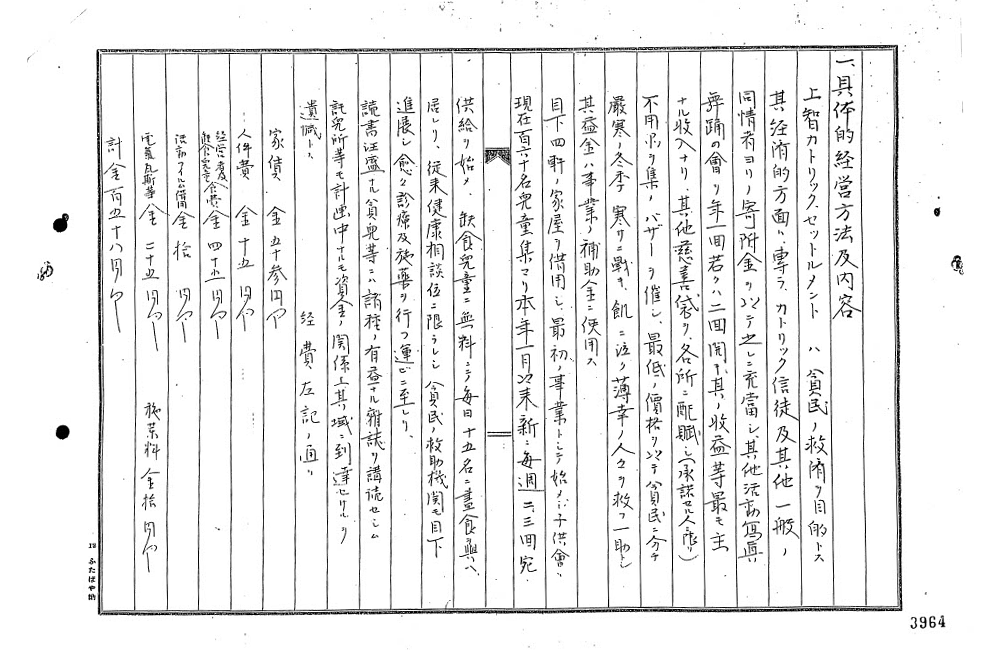Chapter 1.
Social Problems and Sophia Jesuits
Since Sophia University’s foundation, Sophia Jesuits have always directed attention to social problems such as poverty and have devoted themselves to their solution. Sophia School Corporation, founded by the Jesuits, has also inherited the spirit of the Society of Jesus and has been involved in a wide variety of activities. These activities became the spiritual and practical foundations for the establishment of Sophia School of Social Welfare.
In this chapter, we will introduce the record of activities to solve the contemporary social problems of poverty and refugees, focusing on the Sophia Jesuits and tracing them back to their origins.
Section 1: The Challenge of Poverty - Father Anzorena, Magsaysay Award Winner
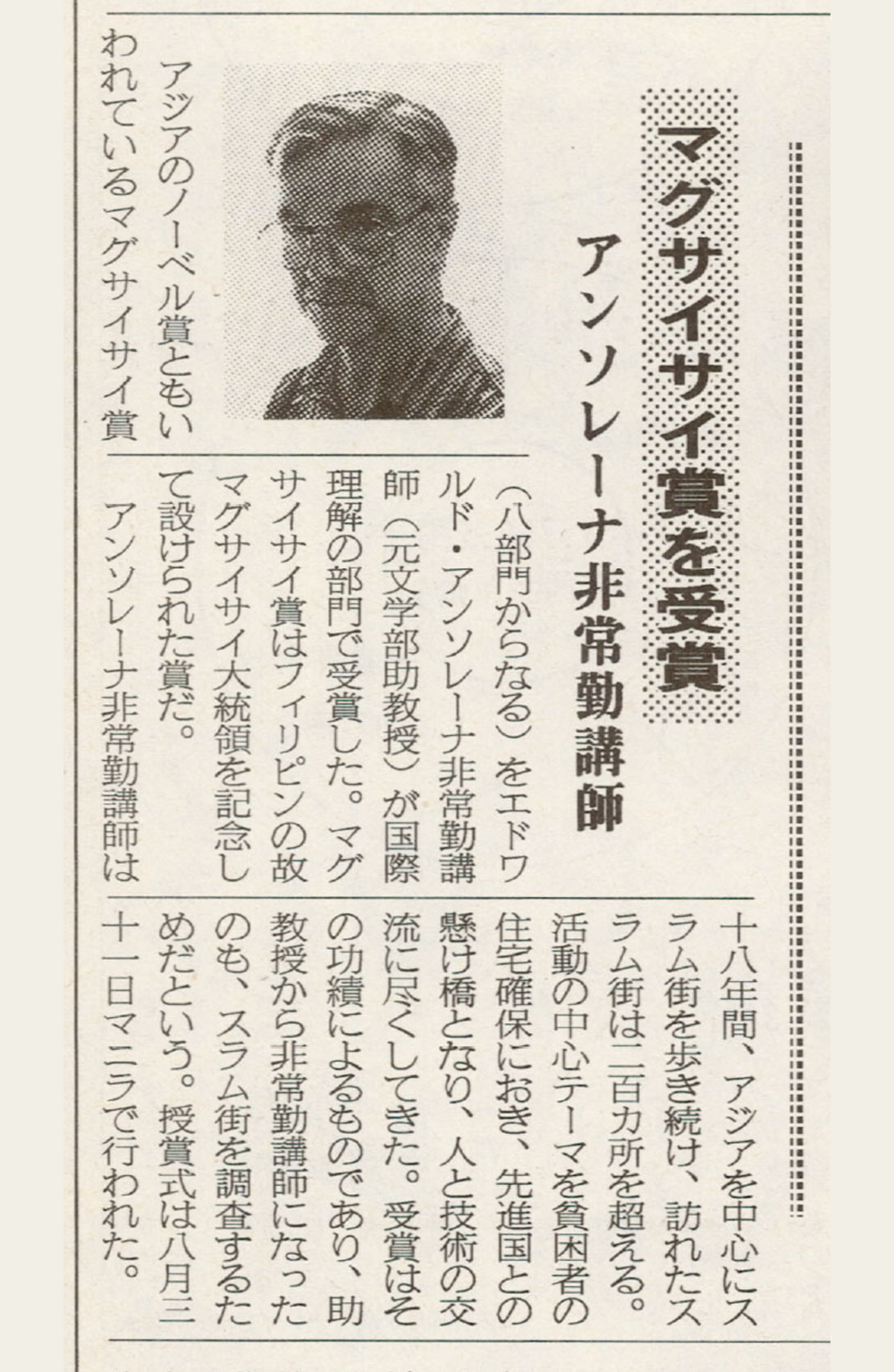 Document Number:"Sophia University Correspondence" October 1, 1994
Document Number:"Sophia University Correspondence" October 1, 1994Since the 1960s, while Asian countries have developed socially and economically, the widening gap between the rich and poor has become an issue. Under these circumstances, the end of the Vietnam War in 1975 and the chaos that followed forced many people to flee their countries. The refugee problem, which concerns the treatment of "refugees" who have lost their country of origin, is also rapidly coming into the spotlight.
Father Jorge Anzorena, a former Assistant Professor in the Faculty of Humanities of Sophia University, has been visiting Asian slums since the 1970s to secure housing for the poor and build low-cost housing. His achievements were recognized in 1994 when he was awarded the Magsaysay Prize, known as Asia's Nobel Prize.
Father Anzorena was born in Argentina in 1930, joined the Jesuits in 1950, came to Japan in 1960, and taught at the University for many years. He has also used his expertise as a Doctor of Engineering to serve as an advisor in building low-cost housing in slums around the world.
Document 1 is an article from the October 1, 1994 edition of the Sophia University News Letter, which reported the Magsaysay Award. Father Anzorena is a Sophian whose service contributes to solving the social problem of poverty.
Section 2: The Challenge of the "Refugee" Problem: Indochina Refugees and Father Joseph Pittau
The first person to actively address the issue of refugees was Father Joseph Pittau, the seventh president of Sophia University (tenure: 1975-1981). In December 1979, President Pittau decided to support refugees through the university under the motto "Loving Hands for Indochina Refugees".
Father Pittau was born in Italy in 1928, joined the Jesuits in 1945, came to Japan in 1952, and taught at Eiko Gakuen Junior High School (Kamakura City, Kanagawa Prefecture) before teaching at the University for many years. He served as Chancellor of the Sophia School Corporation, President of Sophia University, Provincial Superior of the Japanese Province of the Jesuits, Advisor to the Superior General of the Jesuits, and Rector of the Pontifical Gregorian University before being ordained Archbishop in 1988.
Document 2 shows President Pittau personally leading a donation drive on the streets near Shinjuku Station. Donations were also made on campus and were used to fund the construction of a school for the refugees. President Pittau also visited refugee camps in Thailand to explore possibilities for assistance. As a result of the visit, Sophia University students, parents, faculty and staff began volunteering in refugee camps in 1980.
Thus, Jesuits affiliated with Sophia University were working to solve the social problems of the day. Next, let us trace the origin of these activities back to the founding period of the university.
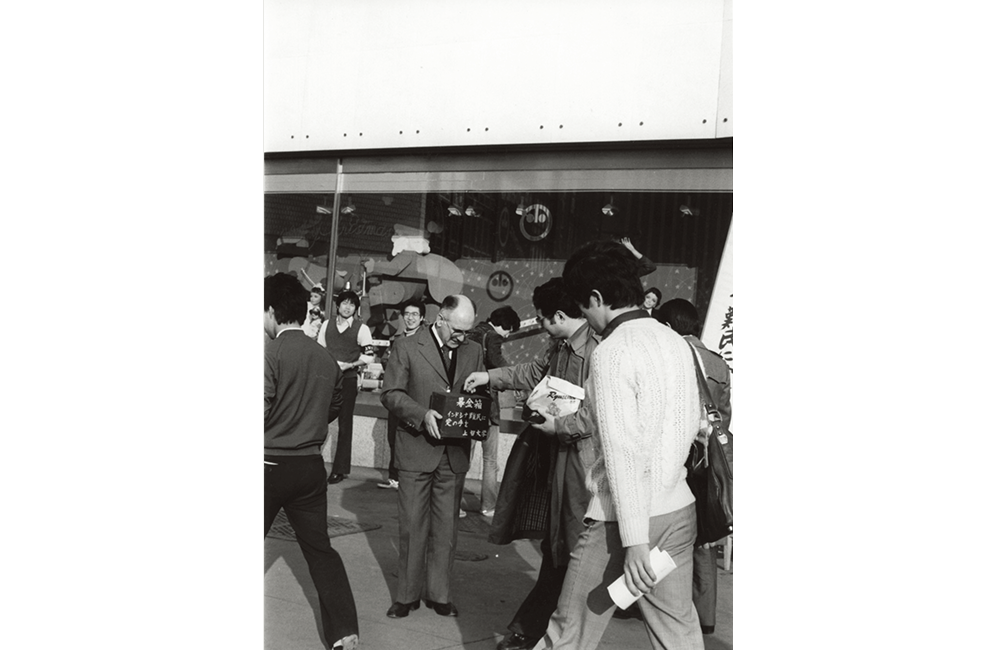 Document Number:nega2-5412N_14
Document Number:nega2-5412N_14
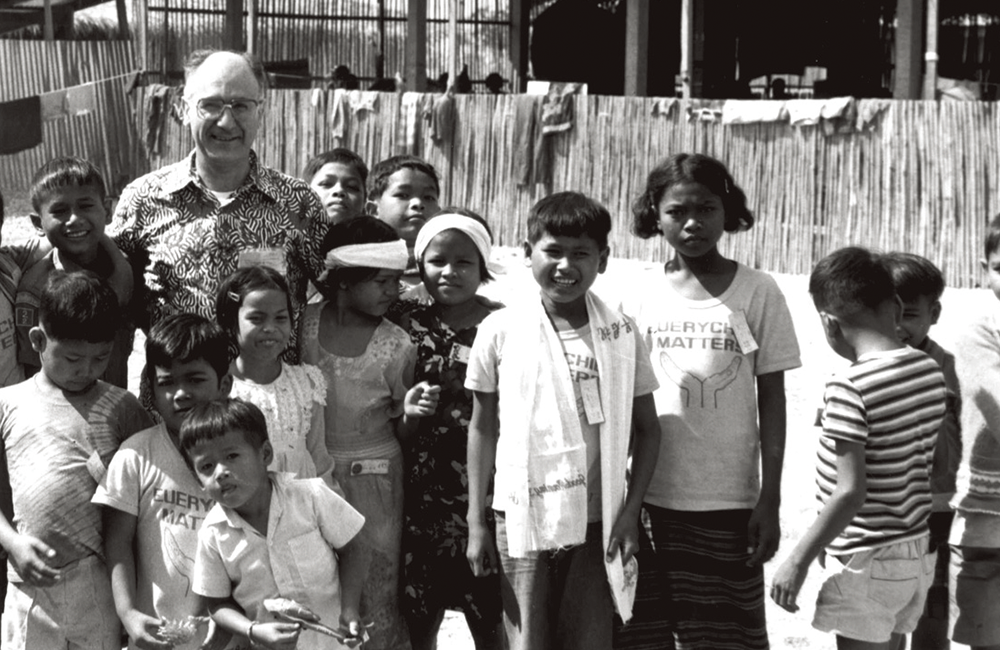 Document Number:Sophia University, One Hundred Years_P.82_3
Document Number:Sophia University, One Hundred Years_P.82_3
Section 3: Father Hugo Lassalle and the Mikawashima Settlement
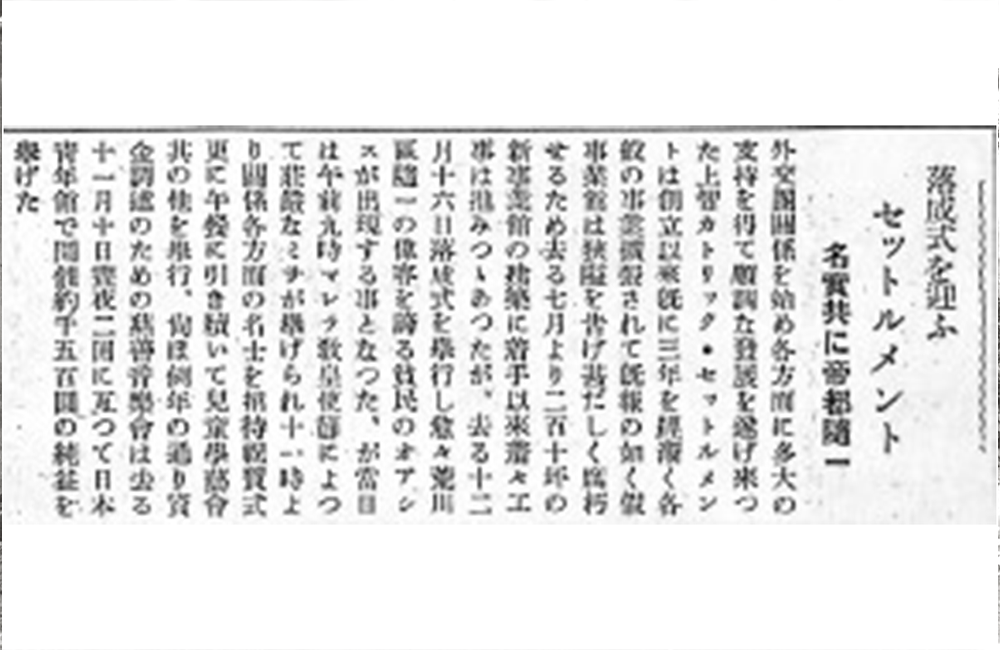 Document Number:FC102_001_014
Document Number:FC102_001_014(Journal of Sophia University Alumni Association, No. 4)
Document 4 reports on the inauguration ceremony of the new project building built by the Sophia Catholic Settlement. The movement was founded in 1931 by Father Hugo Lassalle, a priest who lived in a poor area and interacted with the residents to support education, medical care, and childcare.
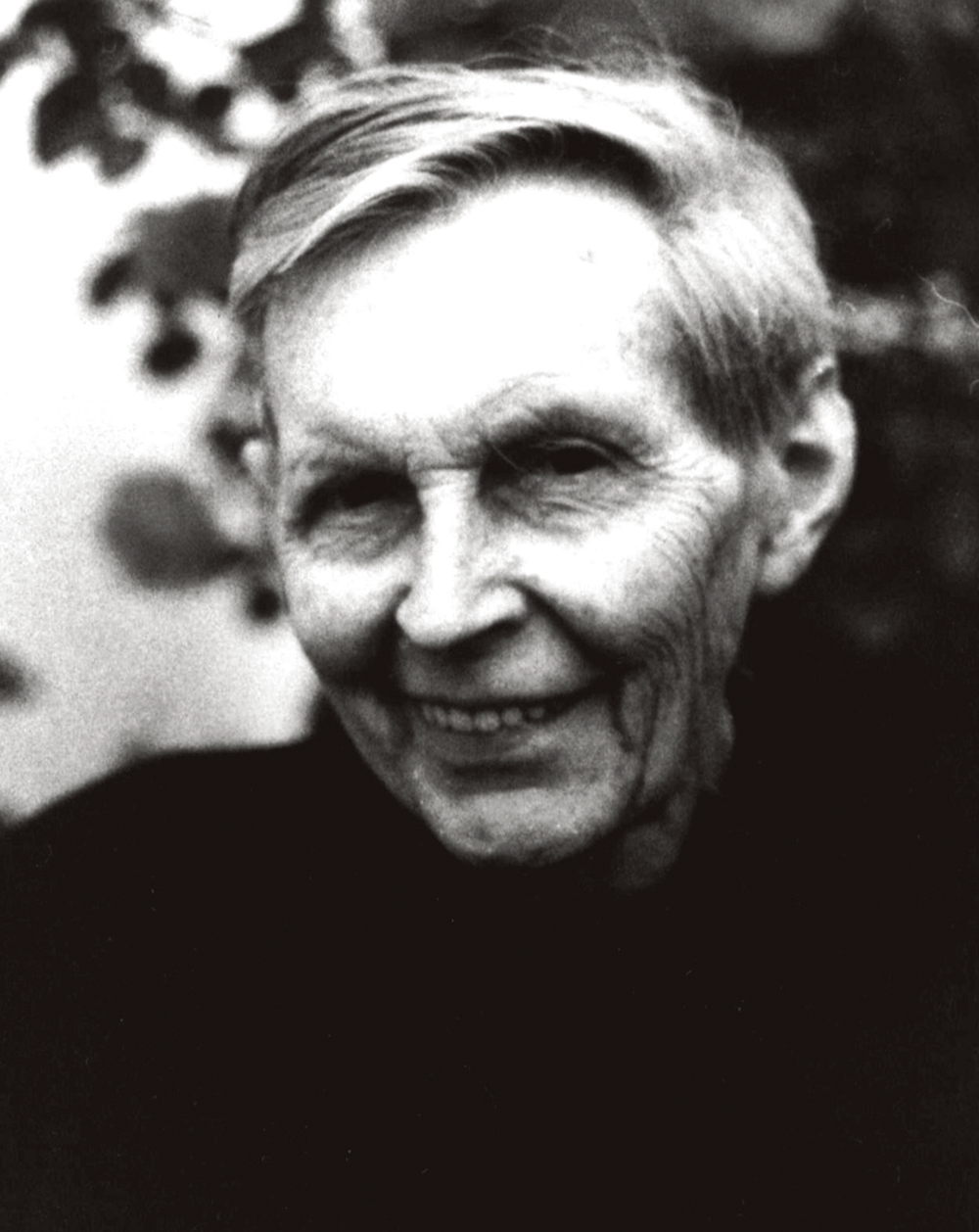 Document Number:nega35A_2384
Document Number:nega35A_2384Father Lassalle was born in Germany in 1898, joined the Jesuits in 1919, and later came to Japan in 1929 to teach at the University. Concerned about the social unrest following the Great Kanto Earthquake of 1923, Father established a Settlement in Mikawashima-cho, Tokyo (now Arakawa-ku, Tokyo).
According to Document 7, "Report on the Mikawashima Settlement," the purposes at the time of its founding were (1) to help the needy and (2) to cultivate a spirit of Catholic charity among its students.
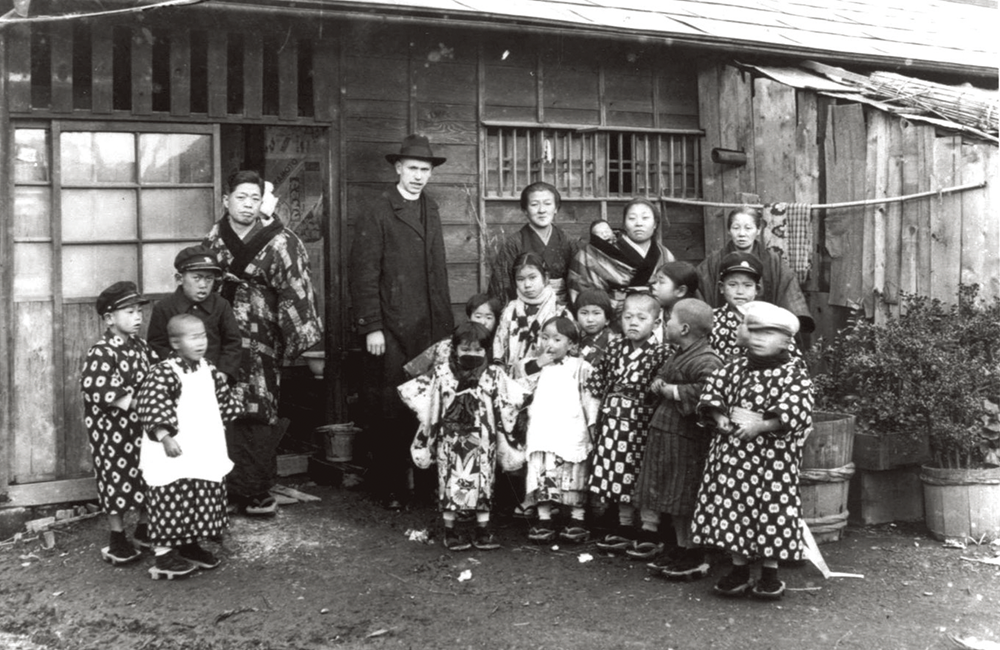 Document Number:Sophia University, One Hundred Years_P.147_4
Document Number:Sophia University, One Hundred Years_P.147_4
Father Lassalle lived in the Settlement with two students and provided lunch for children without lunch, opened a health counseling room, and taught English. The activities were financed by donations and proceeds from bazaars and other events. The "Report on the Mikawashima Settlement" (Doc. 7) clearly records these activities.
In 1936, the management of the Settlement was taken over by the Sophia Social Welfare Foundation* and left the Sophia School Corporation’s hands. However, the commitment of priests and students to serve the poor and needy was passed on to the Sophia School of Social Welfare.
*In 1952, with the enactment of the Social Welfare Service Law, the foundation was reorganized into a social welfare corporation. As a private social welfare organization, it operates child welfare facilities, medical facilities, and home care services.
